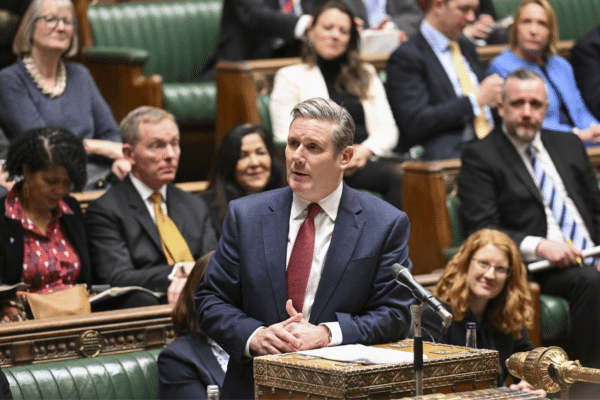The Trades Union Congress (TUC) has launched a campaign to call for new laws to protect workers from the use of artificial intelligence (AI) in recruitment, dismissal and management processes. This call comes amid growing concerns about the impact of AI on the world of work and the lack of adequate regulation to address these challenges.
The TUC, which represents 48 trade unions and around 5.5 million workers, has drafted legislation to adapt UK employment law to the age of AI. This initiative comes at a time when the European Union is moving forward with more ambitious, overarching AI regulations.
Kate Bell, Deputy General Secretary of the TUC, said: "AI is already changing lives in the workplace. We urgently need new guardrails to protect workers." Bell warned that the UK must catch up and become an international leader in the regulation of AI in the workplace.
The TUC argues that the use of AI systems without proper oversight can perpetuate prejudice and lead to discrimination. For example, AI trained on the basis of biased data could favor certain demographic groups and disadvantage others, leading to systematic discrimination. In addition, the interpretation of facial expressions and voice tones can vary greatly across cultures, increasing the risk of unfair decisions.
Proposals
The TUC's draft legislation contains several measures to ensure greater transparency and fairness in the use of AI in the workplace. The proposals include:
- Employers must consult workers before introducing AI systems designed to make "high-risk" decisions and explain their use.
- A legal right for jobseekers and workers to request human review of AI decisions.
- A ban on emotion recognition technologies, described by the TUC as "pseudoscience'
- Introduce a new right for workers to stop emailing outside of working hours, similar to measures recently introduced in countries such as France and Ireland.
The debate over the use of AI in recruitment and workplace management reflects a broader dilemma over the role of technology in the workplace. While some companies argue that AI can make the selection process more efficient and objective, unions and workers' rights activists warn of the risk of dehumanization and loss of opportunity for those who don't fit the profiles defined by the technology.
The proposed legislation also aims to protect current employees and ensure that their facial expressions and tone of voice are not invasively monitored to assess their performance or loyalty.
The TUC is working closely with legislators to progress this proposed legislation. It has called for public hearings and parliamentary debates to discuss the potential impact of AI on the labor market and the need for stricter regulations.
Neil Ross, deputy director of policy at TechUK, acknowledged that the riskiest AI applications in the workplace need to be regulated, but expressed concern that the balance has not yet been struck for today's standard technology augmented by AI.
The UK government has so far been reluctant to regulate the development and use of AI, fearing that this could slow down technological progress. However, ministers now consider restricting the most powerful AI models for general purposes.
The government said it was "working with businesses and regulators on the safe and responsible adoption of AI in the workplace" It announced a £10 million support package to help regulators "develop the skills, expertise and institutions necessary to ensure that any legislation, when introduced, is as effective as possible"






